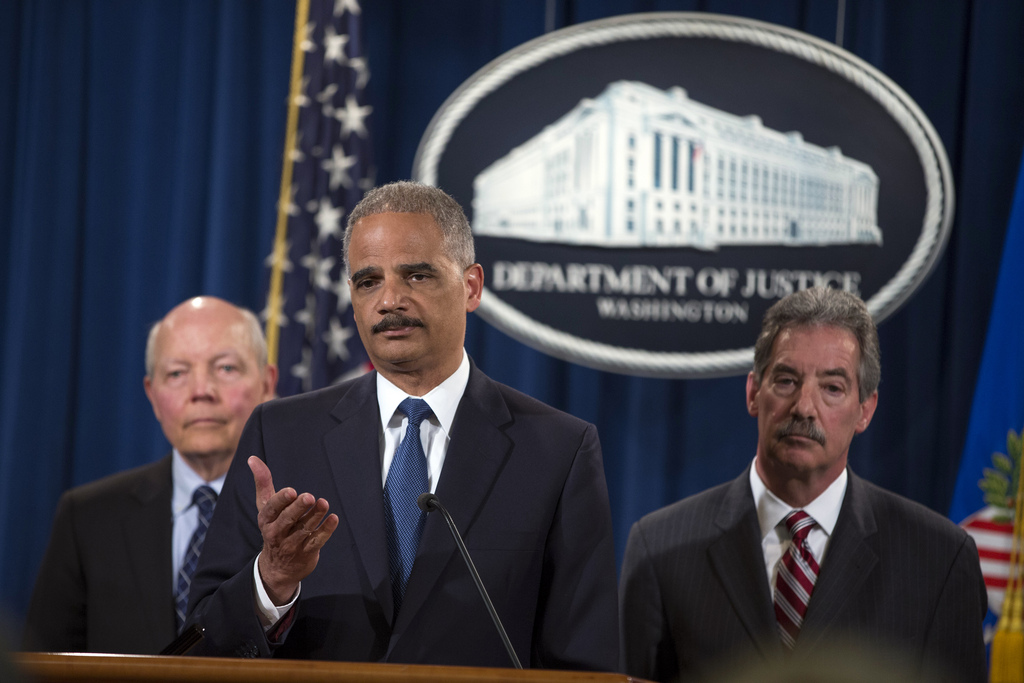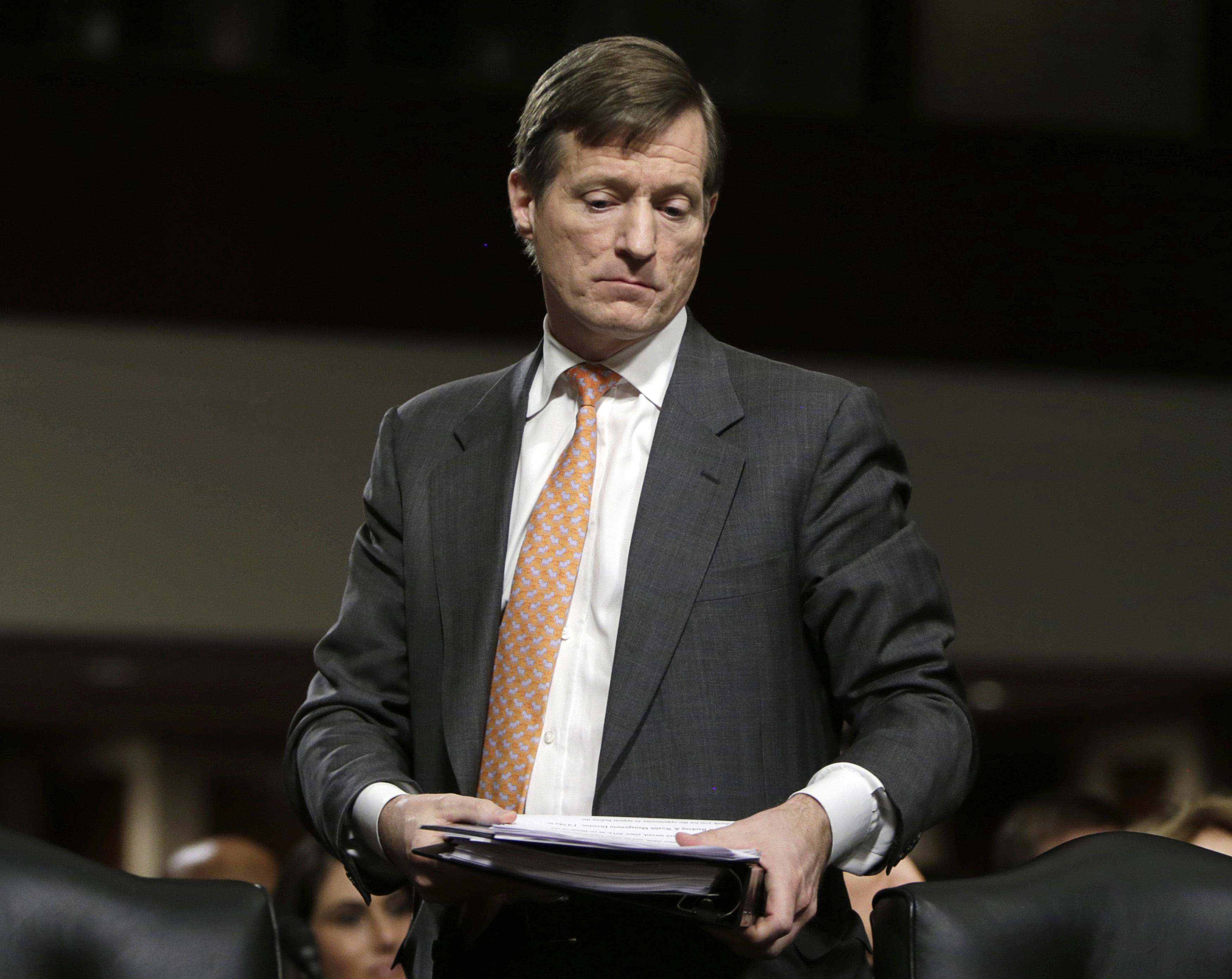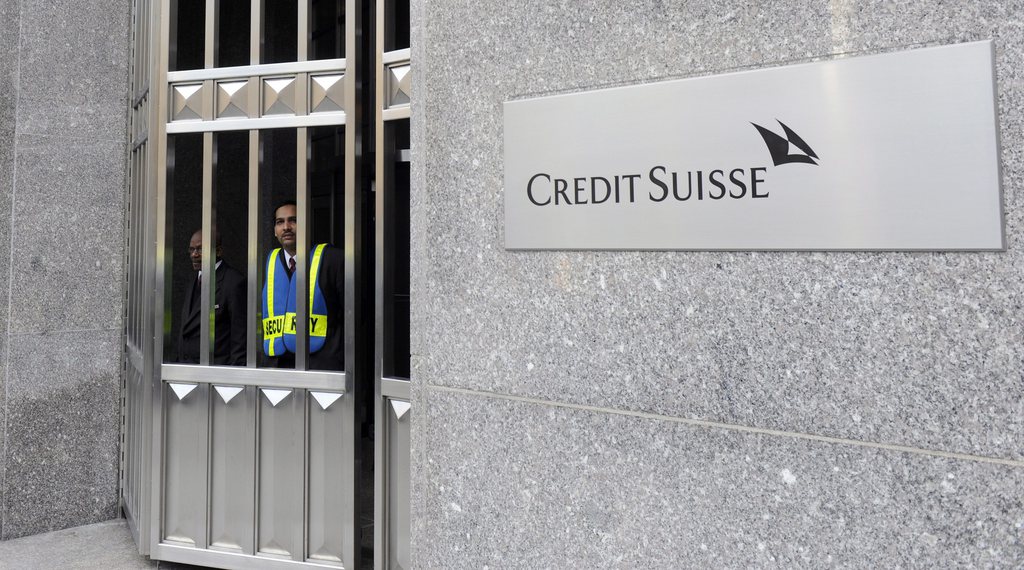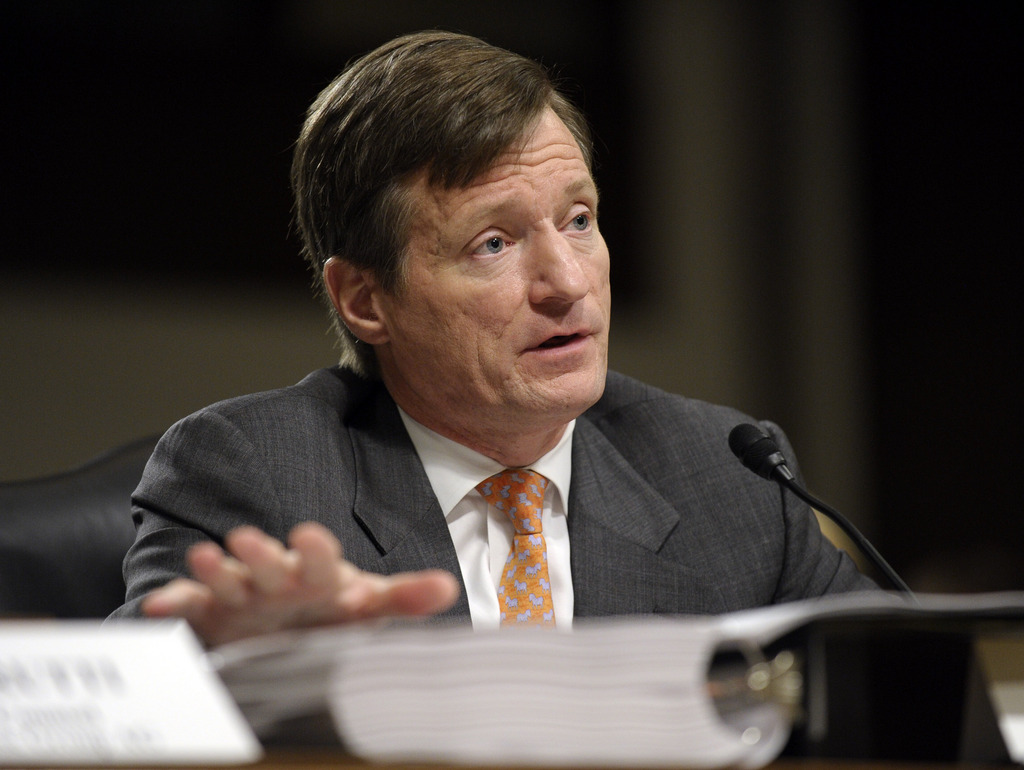CS verdict seen as end of dark chapter

The Swiss government and the country’s financial sector have welcomed the resolution between Credit Suisse and the United States, hoping that Switzerland’s second-largest bank can now concentrate on its business rather than legal activities.
The Swiss government said in a statement on Tuesday it welcomed the agreement, “which resolves the long-standing conflict between the Department of Justice and Credit Suisse”.
“What is also particularly important is that there will be no licence withdrawals with this solution and the use of emergency legislation is not an issue,” it added.
Swiss Finance Minister Eveline Widmer-Schlumpf said at a press conference on Tuesday that she believed Switzerland had been strengthened as an economic centre.

More
Credit Suisse admits US tax evasion guilt
“For the cabinet it is important that a solution was found within the scope of the Swiss legal system,” she said, adding that the use of an emergency law was now off the table.
Widmer-Schlumpf said the cabinet had not been party to the negotiations, but had always worked so that Swiss banks were not treated worse than other banks in the same situation.
“It is now up to the Americans to ratify the additional protocol to the Double Taxation Agreement (DTA),” she said. This would pave the way for legal assistance with group requests in cases of suspected tax evasion – not only fraud.
She hoped solutions with other banks of group 1 (a dozen institutions already under active investigation for suspected tax evasion offences) could be found within the “next few months”. She said there were indications that the US Senate might approve the DTA before the end of the year.
On Monday, Credit Suisse became the largest bank in 20 years to plead guilty to a US criminal charge, and will pay a $2.6 billion fine to authorities for helping Americans evade taxes.
But the Swiss bank escaped the worst for its business: its top management stayed in place and the New York state bank regulator said it had decided not to revoke the bank’s licence in the state.
‘No further measures’
The Swiss Financial Market Supervisory Authority (FINMA) chose Tuesday to publish a summary report on the enforcement proceedings it conducted against Credit Suisse between 2011 and 2012. The proceedings focused on the bank’s cross-border business with US clients during the period from 2000 to 2008.
FINMA concluded that Credit Suisse had violated its duty to identify, limit and monitor the risks involved in the US client business.
“The corrective measures ordered by FINMA have been implemented by Credit Suisse,” it said. “FINMA’s proceedings have been concluded and no further measures against Credit Suisse are to be expected.”
The Swiss Bankers’ Association (SBA) acknowledged that the solution respected the Swiss legal framework and said it was “positive” that Credit Suisse could now draw a line under the negotiations with the US and again concentrate fully on its business activities.
As for the future, the SBA said it expected that the other Swiss banks subject to an investigation by the US Department of Justice reach settlements soon as well, “which should also be consistent with the principles of fairness and proportionality”.
In a statement on Tuesday, the Swiss Bank Employees’ Association said staff “shouldn’t have to pay for their bank’s mistakes”. Although they were relieved that a resolution to the tax issue had been found, they added that “in order for the Swiss finance centre to maintain its credibility, top management has to take responsibility”.
They believe that Credit Suisse’s business strategy “which led to this situation” was developed by upper management and rubber-stamped by big shareholders.
‘Appropriate conditions’
Ahead of the verdict on Monday, the Swiss National Bank (SNB) said in a statement that apart from the banks themselves, politicians and the authorities also faced challenges. Their efforts needed to focus on creating appropriate business conditions, it said, with four factors being particularly important.
“First, the ‘too big to fail’ issue must be alleviated by means of relevant and effective regulations. Second, Switzerland’s good reputation as a politically and economically stable country must be maintained,” it said.
“Third, a plan must be drawn up whereby privacy is guaranteed to honest tax-paying bank customers from abroad, even when the OECD standard on the automatic exchange of information is applied. Fourth, in discussions with authorities and regulators abroad, efforts should be made to ensure that access to foreign markets is guaranteed for Swiss banks.”
‘Clean record’
The settlement raises uncomfortable questions for CEO Brady Dougan and Chairman Urs Rohner, who had come under pressure from Swiss politicians to resign. One Zurich-based dealer said on Tuesday that the guilty plea may yet result in changes to top management and bank strategy further down the line.
Rohner said in an interview with Swiss public radio, SRF, on Tuesday that he and CEO Dougan personally had “a clean record”, but the same could not be said for the bank’s behaviour in past decades.
FINMA effectively cleared the two, saying it had found no evidence that Credit Suisse top management knew of specific misconduct.

In compliance with the JTI standards
More: SWI swissinfo.ch certified by the Journalism Trust Initiative











You can find an overview of ongoing debates with our journalists here . Please join us!
If you want to start a conversation about a topic raised in this article or want to report factual errors, email us at english@swissinfo.ch.